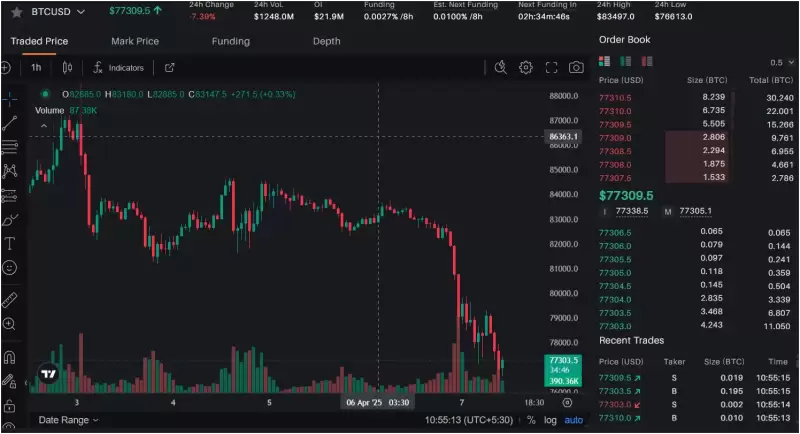 |
|
 |
|
 |
|
 |
|
 |
|
 |
|
 |
|
 |
|
 |
|
 |
|
 |
|
 |
|
 |
|
 |
|
 |
|
世界的な経済状況は継続的に変化しており、最新の混乱の1つは、ドナルドトランプ米大統領の関税の賦課によるものです

The global economic landscape is in a state of flux, with one of the latest disruptions coming from former U.S. President Donald Trump’s imposition of tariffs, including a 10% baseline tariff effective from April 9.
世界の経済状況は流動状態にあり、4月9日からの10%のベースライン関税を含む、ドナルドトランプ元大統領の関税の賦課による最新の混乱の1つがあります。
These tariffs could have far-reaching consequences for countries within the BRICS bloc (Brazil, Russia, India, China, and South Africa). As the world’s second-largest economy, China, and other BRICS nations grapple with the effects of these tariffs, the question arises: Can BRICS emerge victorious from Trump’s tariff policies?
これらの関税は、BRICSブロック(ブラジル、ロシア、インド、中国、南アフリカ)内の国々に広範囲にわたる結果をもたらす可能性があります。世界で2番目に大きい経済、中国、および他のBRICS諸国がこれらの関税の影響に取り組んでいるので、疑問が生じます。BRICSはトランプの関税政策から勝利することができますか?
Trump’s tariffs, particularly those targeting imports from China, have been a significant point of contention in international trade. His “America First” approach led to a trade war, especially with China, which is a major U.S. trade partner. These tariffs were designed to curb China’s trade surplus with the U.S. and encourage more domestic production in the United States. However, as the tariffs spread to other regions, the BRICS nations found themselves in the spotlight as potential losers in the global trade battle.
トランプの関税、特に中国からの輸入を標的とする関税は、国際貿易における重要な争点でした。彼の「アメリカファースト」アプローチは、特に米国の主要な貿易パートナーである中国との貿易戦争につながりました。これらの関税は、中国の米国との貿易黒字を抑制し、米国でのより多くの国内生産を奨励するように設計されています。しかし、関税が他の地域に広がるにつれて、BRICS諸国は、世界貿易の戦いで潜在的な敗者として脚光を浴びていることに気づきました。
For China, Trump’s tariffs have directly impacted its exports to the U.S. This means that China may need to shift its trade focus to other markets. However, this has opened up opportunities for BRICS nations in terms of forging deeper trade relations within the group and with emerging markets. With the shift in global supply chains, there is potential for BRICS nations to capitalize on this disruption.
中国にとって、トランプの関税は米国への輸出に直接影響を与えてきました。これは、中国が貿易の焦点を他の市場に移す必要があるかもしれないことを意味します。しかし、これは、グループ内および新興市場とのより深い貿易関係を築くという点で、BRICS諸国に機会を開きました。グローバルサプライチェーンのシフトにより、BRICS諸国がこの混乱を利用する可能性があります。
One of the key advantages that BRICS could gain from Trump’s tariffs is the potential for deeper economic integration within the bloc. Historically, BRICS countries have sought to strengthen their economic ties and reduce dependency on the West. With Trump’s tariffs limiting trade between the U.S. and China, countries within the BRICS group could step in to fill the void by enhancing intra-BRICS trade. This could lead to a more resilient, diversified economy for these nations, less reliant on the U.S. and Europe.
BRICSがトランプの関税から得ることができる重要な利点の1つは、ブロック内のより深い経済的統合の可能性です。歴史的に、BRICS諸国は経済的なつながりを強化し、西側への依存を減らすことを目指してきました。トランプの関税が米国と中国の間で貿易を制限することで、BRICSグループ内の国々は、ブリックス内貿易を強化することで空白を埋めるために介入することができました。これは、米国とヨーロッパにあまり依存していない、これらの国のより回復力のある多様な経済につながる可能性があります。
BRICS nations could also benefit from the diversification of supply chains. The trade war initiated by Trump has caused many countries to reconsider their reliance on China and the U.S. for manufacturing and supply chains. BRICS countries, especially India, Brazil, and South Africa, could benefit from this shift. India, for instance, has the potential to attract more manufacturing businesses as companies look for alternatives to China. Brazil could see a boost in its agricultural exports to countries that were previously reliant on Chinese imports. South Africa, with its abundant resources, might emerge as an important player in the global supply chain.
BRICS諸国は、サプライチェーンの多様化の恩恵を受けることもできます。トランプによって開始された貿易戦争により、多くの国が製造およびサプライチェーンのために中国と米国への依存を再考するようになりました。 BRICS諸国、特にインド、ブラジル、南アフリカは、このシフトの恩恵を受ける可能性があります。たとえば、インドは、企業が中国の代替品を探しているため、より多くの製造業を引き付ける可能性があります。ブラジルは、以前は中国の輸入に依存していた国への農業輸出が後押しされる可能性がありました。豊富な資源を備えた南アフリカは、グローバルなサプライチェーンの重要なプレーヤーとして現れる可能性があります。
Moreover, Trump’s tariffs have sparked frustration among other nations in the developing world who feel disadvantaged by U.S. trade policies. As a result, BRICS nations, particularly Brazil, Russia, and India, might find themselves in a better position to cultivate diplomatic and economic ties with these frustrated nations. Through initiatives like the New Development Bank (NDB), BRICS could leverage its collective influence to forge stronger partnerships with developing countries, offering them an alternative to Western-dominated financial institutions.
さらに、トランプの関税は、米国の貿易政策によって不利な立場にあると感じる発展途上国の他の国々の間で欲求不満を引き起こしました。その結果、BRICS諸国、特にブラジル、ロシア、インドは、これらの欲求不満の国々と外交的および経済的なつながりを築くためのより良い立場にいるかもしれません。 New Development Bank(NDB)のようなイニシアチブを通じて、BRICSは集合的な影響力を活用して、発展途上国とのより強力なパートナーシップを築き、西側が支配的な金融機関に代わるものを提供することができます。
Another interesting development to watch is BRICS’s push for a new global reserve currency. One of the more ambitious long-term goals of BRICS is to challenge the dominance of the U.S. dollar in global trade and finance. With the U.S. imposing tariffs and shifting towards a more protectionist stance, BRICS could accelerate efforts to diversify the global reserve currency system. The idea of creating a BRICS-backed currency or increasing the use of the Chinese yuan in global trade could gain momentum in the coming years. Countries outside the bloc may view this as a viable alternative to U.S. economic hegemony.
見るべきもう1つの興味深い開発は、BRICSが新しいグローバルな準備通貨を推進することです。 BRICSのより野心的な長期的な目標の1つは、世界貿易と金融における米ドルの支配に挑戦することです。米国が関税を課し、より保護主義的な姿勢に向かってシフトすることで、BRICSは世界の準備通貨システムを多様化するための努力を加速することができました。 BRICSが支援する通貨を作成したり、世界貿易における中国元の使用を増やすという考えは、今後数年間で勢いを増す可能性があります。ブロック外の国は、これを米国の経済的覇権に代わる実行可能な代替と見なすかもしれません。
However, despite these opportunities, the BRICS nations face several hurdles in fully capitalizing on Trump’s tariffs.
しかし、これらの機会にもかかわらず、BRICS諸国は、トランプの関税を完全に活用するいくつかのハードルに直面しています。
Some BRICS nations, like Brazil and South Africa, face political instability, which could undermine their ability to attract investment and maintain steady economic growth. Political uncertainty could hinder the ability of these nations to implement necessary reforms and take full advantage of the shifting global trade patterns.
ブラジルや南アフリカのような一部のBRICS諸国は、政治的不安定に直面しており、投資を引き付け、安定した経済成長を維持する能力を損なう可能性があります。政治的不確実性は、これらの国が必要な改革を実施し、世界的な貿易パターンの変化を最大限に活用する能力を妨げる可能性があります。
Several BRICS nations, particularly Brazil, Russia, and South Africa, remain heavily dependent on commodity exports like oil, metals, and agricultural products. While these exports may see demand increases, price volatility could undermine the long-term benefits of tariff-induced shifts in global trade patterns. For these nations, diversifying their economies away from commodity reliance remains a major challenge.
いくつかのBRICS諸国、特にブラジル、ロシア、南アフリカは、石油、金属、農産物などの商品輸出に大きく依存しています。これらの輸出により需要が増加する可能性がありますが、価格のボラティリティは、グローバル貿易パターンの関税誘発シフトの長期的な利点を損なう可能性があります。これらの国にとって、商品の信頼から彼らの経済を多様化することは依然として大きな課題です。
BRICS countries have very different economic structures, which means they may struggle to form a cohesive, unified economic strategy. China, with its advanced manufacturing base, is significantly different from India and Brazil, which rely more on services and agriculture. This economic disparity could limit the effectiveness of any collective action or economic policy among the group.
BRICS諸国には非常に異なる経済構造があります。つまり、まとまりのある統一された経済戦略を形成するのに苦労する可能性があります。高度な製造基地を持つ中国は、サービスと農業に依存しているインドやブラジルとは大きく異なります。この経済的格差は、グループ間の集団行動または経済政策の有効性を制限する可能性があります。
Overall, while Trump’s tariffs may have initially posed significant risks for BRICS nations, these countries have the potential to turn this challenge into an opportunity. By increasing intra-BRICS trade, diversifying supply
全体として、トランプの関税は当初BRICS諸国に大きなリスクをもたらしたかもしれませんが、これらの国はこの課題を機会に変える可能性があります。ブリック内貿易を増やし、供給を多様化することにより
免責事項:info@kdj.com
提供される情報は取引に関するアドバイスではありません。 kdj.com は、この記事で提供される情報に基づいて行われた投資に対して一切の責任を負いません。暗号通貨は変動性が高いため、十分な調査を行った上で慎重に投資することを強くお勧めします。
このウェブサイトで使用されているコンテンツが著作権を侵害していると思われる場合は、直ちに当社 (info@kdj.com) までご連絡ください。速やかに削除させていただきます。
























































